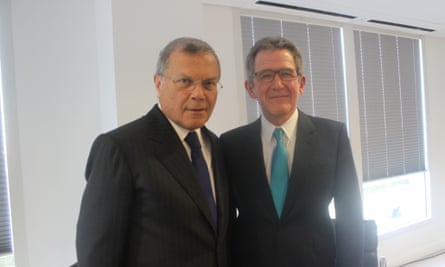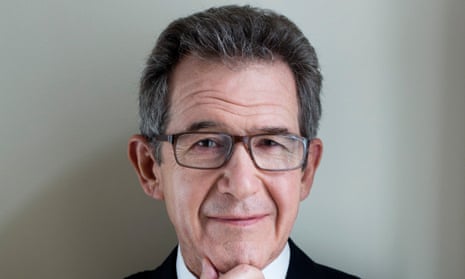Lord Browne, the former CEO of BP, has called on CEOs to take responsibility for setting the right tone around LGBT inclusion at work.
During an interview with Sir Martin Sorrell at an Ogilvy Pride event, Browne said: “I think while LGBT networks are fine, they are nothing like enough. Because unless they have straight allies on them and are connected to the top, they are interesting places to swap stories, but they don’t actually communicate and affect the way in which things happen at a company.”
Browne argues that people in business still worry about how coming out will impact how they build business relationships. He outlined four ways that companies can make the workplace more inclusive for LGBT employees. First, he stressed the importance of those at the top of an organisation setting the right tone. He said: “You need an absolute commitment from the top that things are going to get done and the direction has to be very clear.”
Second, managers should spend time worrying “if what they are doing is excluding or including people”.
Third, organisations must ensure they have LGBT role models at all levels of the company. “In order to get people to come out, you have to have an inclusive business to come out to.”
Fourth, companies need to tell stories. He explained: “I think one of the big things about getting something done in a company is to explain how it worked or how it didn’t work in a real situation ... and to tell a story about it. I think it’s very undervalued in corporate life.”

On the benefits of LGBT employees being out and feeling comfortable at work, Browne said that if employees are spending their time trying to hide their sexuality, they are not focusing on their job or the business. He added that recent research demonstrates those that felt included within organisations were also more likely to feel engaged, with well-engaged companies consistently outperforming their competitors.
With homosexuality still a criminal offence in over 70 countries and a capital offence in five, Browne offered some advice for global companies: “In countries where it remains illegal, you can’t, of course, break the law. The consequences could be extreme, in some cases. What I think you can do as a foreign company is you can nudge. When CEOs go they can keep nudging on this matter and they can also send out gay people to those countries.”
Asked by the audience if he is in favour of having LGBT quotas to fill board-level positions, Browne said: “I don’t like quotas generally. I’m happy with them for a very short period of time to make a point. I prefer disclosure.” He added you need “a diverse panel or committee” helping to recruit these senior-level positions and that headhunters must drop their “very cautious approach” to recruiting for boards and look at “different sets of people”.
Lord Browne wrote The Glass Closet to shine a light on the “difficulties that still plague LGBT employees”. It followed his resignation from BP in 2007 after he lost a court battle with a newspaper that outed him as a gay man.
Reflecting on his decision to hide his sexuality, Browne described the reasons as “several fold”. He said that when he was at university “the idea of anyone being openly gay, unless you were a don, was impossible ... it was illegal, apart from anything else, to do anything about it.” He added that he was also influenced by advice from his mother, Paula Browne, who was an Auschwitz survivor: “Don’t tell anyone a secret, because if you tell a secret, it’s no longer a secret and they’ll use it against you” and “remember that when the going gets tough, the majority always herd the minority”.
Commenting on his new life as an openly gay man, Browne said: “I realised life could change a lot if you’re comfortable with yourself. That was a very important, albeit late, lesson for me.”
To get weekly news analysis, job alerts and event notifications direct to your inbox, sign up free for Media Network membership.
All Guardian Media Network content is editorially independent except for pieces labelled ‘Advertisement feature’. Find out more here.

Comments (…)
Sign in or create your Guardian account to join the discussion